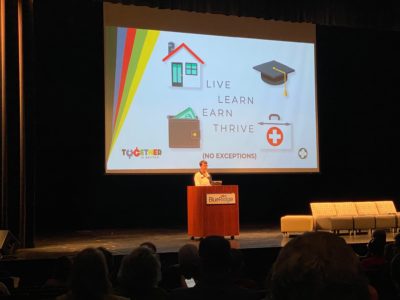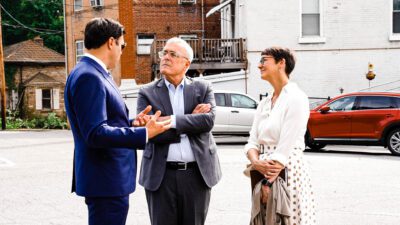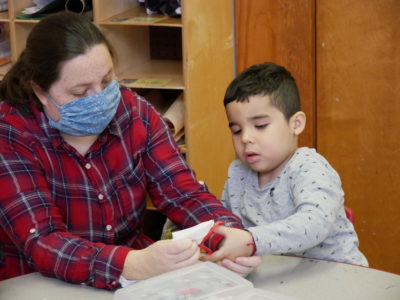
|
|
On Oct. 18, Dogwood Health Trust held its second regional convening, bringing together about 360 partners, grantees, and speakers at Western Carolina University in Cullowhee, Jackson County. Many more joined the annual meeting virtually.
“There is nothing we can’t do when we come together in the spirit of collaboration,” said Susan Mims, the CEO of the Trust.

“I am constantly inspired by the work of our partners,” said Mims. “You work together tirelessly to help your neighbors live lives with more ease. You work for justice when you see people being left behind or left out of opportunities, and you bring hope and passion to those you serve.”
“You see possibilities.”
— Susan Mims, CEO, Dogwood Health Trust
The forces driving change in Western North Carolina
“We live in a time of unprecedented change,” said Patrick Woodie, the president and CEO of the NC Rural Center. “This region has a particular handle on the challenges.”

Woodie offered a few reminders about what it means to be rural in North Carolina:
- North Carolina has the 2nd largest rural population in the United States.
- North Carolina has the 2nd largest rural school population in the country.
- 78 of 100 counties are rural, but 24 of 78 rural counties are within metropolitan statistical areas (MSAs).
- 403 of our 556 towns are rural
Woodie presented the NC Rural Center’s report titled, “Forces Driving Change in Rural North Carolina,” including these eight key drivers:
- Education for tomorrow’s labor market.
- Safe, modern, affordable infrastructure.
- Rural healthcare inequities and social determinants of health.
- Weather and climate resiliency.
- Small business development.
- Sustainable leadership and community collaboration.
- The long-term impact of COVID.
- Increasing diversity, and working towards a rural NC for everyone.
This past summer, the NC Rural Center traveled to 12 counties in the north, south, east, and west regions of North Carolina, engaging with 350 cross-sector leaders to listen and learn more about the forces shaping our communities.
On the road trip, the NC Rural Center shared the drivers with elected officials, community leaders, business owners and others interested in rural development, learning more about the obstacles communities are facing, as well as where and how they’re having the most success, said Woodie.
They found that across these drivers local nuance matters.
“This is a region you can get your arms around,” Woodie said. “You should feel really good about the work you are doing, the impact you can have, and the ability that you have to move the needle on the things that matter most to you and the people that live here.”
“There is no quit in the people in this region,” Woodie concluded.
Meet Casey Cooper
Across Western North Carolina, the agenda for the partner convening noted there are “countless stories of individuals and organizations who have made significant positive changes in their communities.”
One of those individuals is Casey Cooper.
Cooper is beloved across the region, and he was recently awarded the state’s highest civilian honor, the Order of the Longleaf Pine.
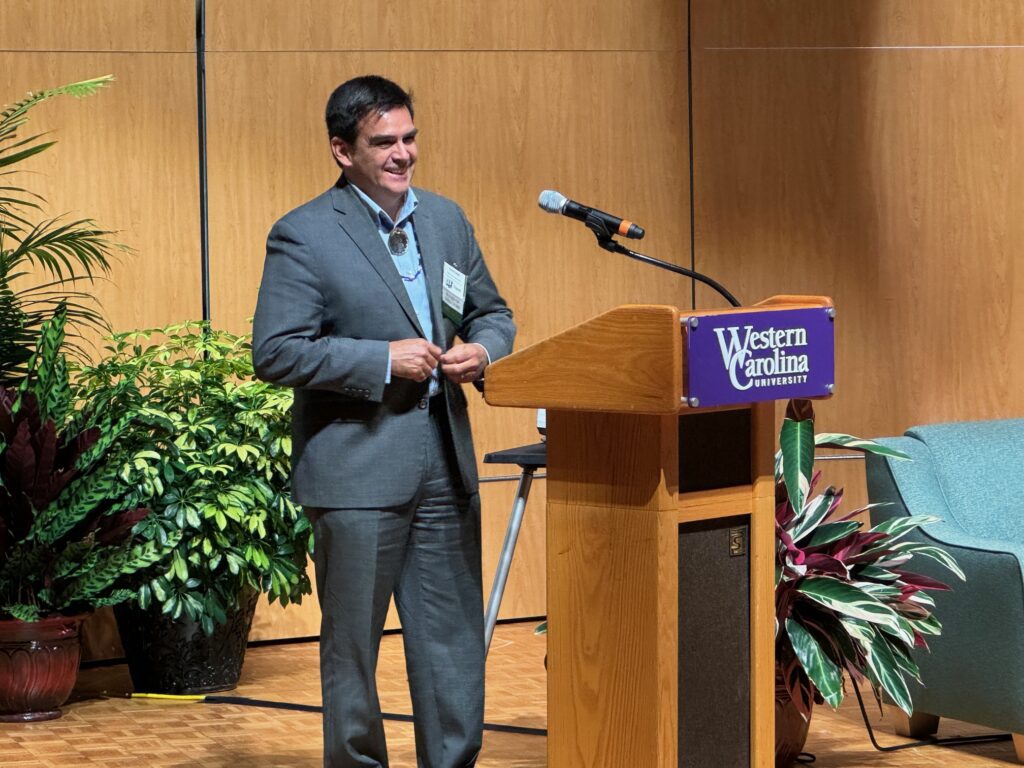
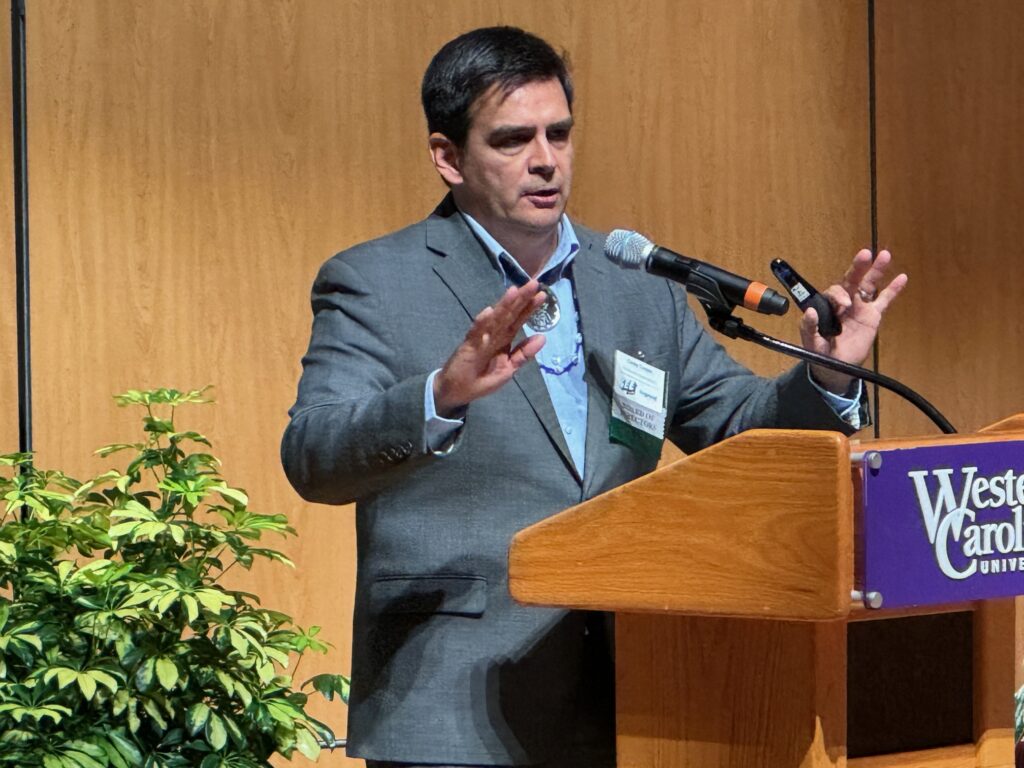
Cooper, CEO of Cherokee Indian Hospital since 2004 and now also a member of the Dogwood board, delivered a keynote speech titled, “Passion, Commitment, and Collaboration: The touchstones of possibilities from survival to significance.”
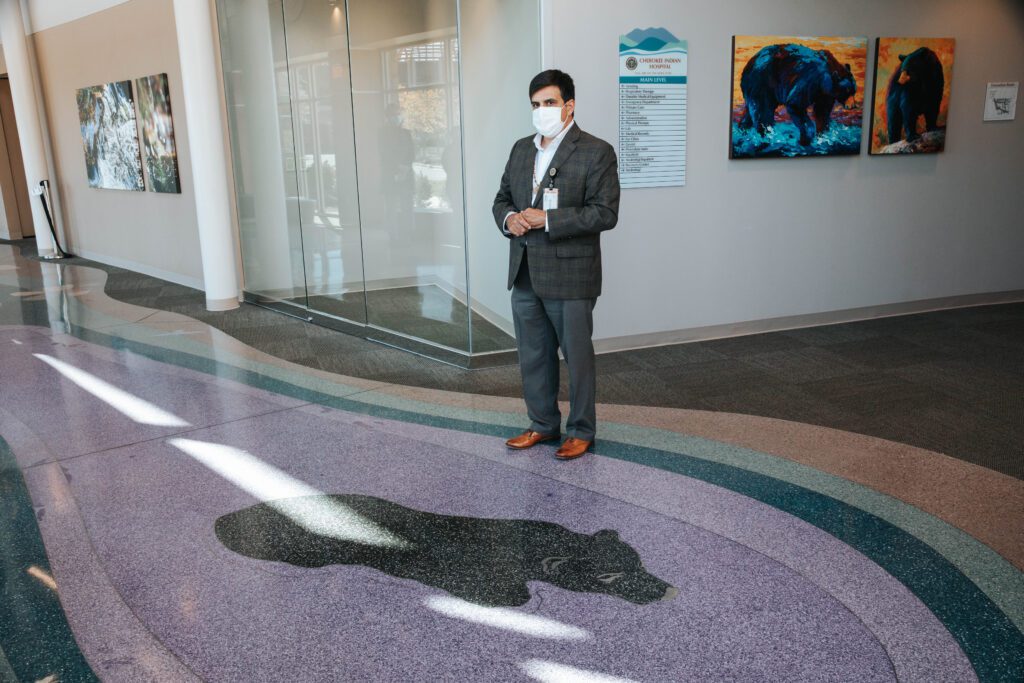
Cooper grew up in the Cherokee community before gaming and economic development made its way there, so he has been imagining possibility all of this life, according to the Trust’s website.
“I remember growing up around all these people that were just absolutely brilliant,” he said. “They had the capacity to do wonderful things; they just didn’t have the resources to make it happen.”
For more than 25 years, Cooper’s entire career has focused on the health-related needs of the approximately 15,500 enrolled Tribal Members of the Eastern Band of Cherokee Indians (EBCI), serving first as a primary care nurse, community health nurse, nurse educator, nursing manager, and then health director before becoming CEO of the hospital.
Cooper shared the story of the Eastern Band’s journey to provide health care to his community. What did he learn?
“I’m convinced,” he said, “that if everyone comes together — and it doesn’t matter who gets the credit — there is nothing that’s impossible.”
The Trust offers gratitude at the annual meeting
Mark Constantine, Dogwood’s Senior Vice President of Community Investment, offered the partners gratitude for “your work, your inspiration, your time, and your commitment that sustains and strengthens western North Carolina.”
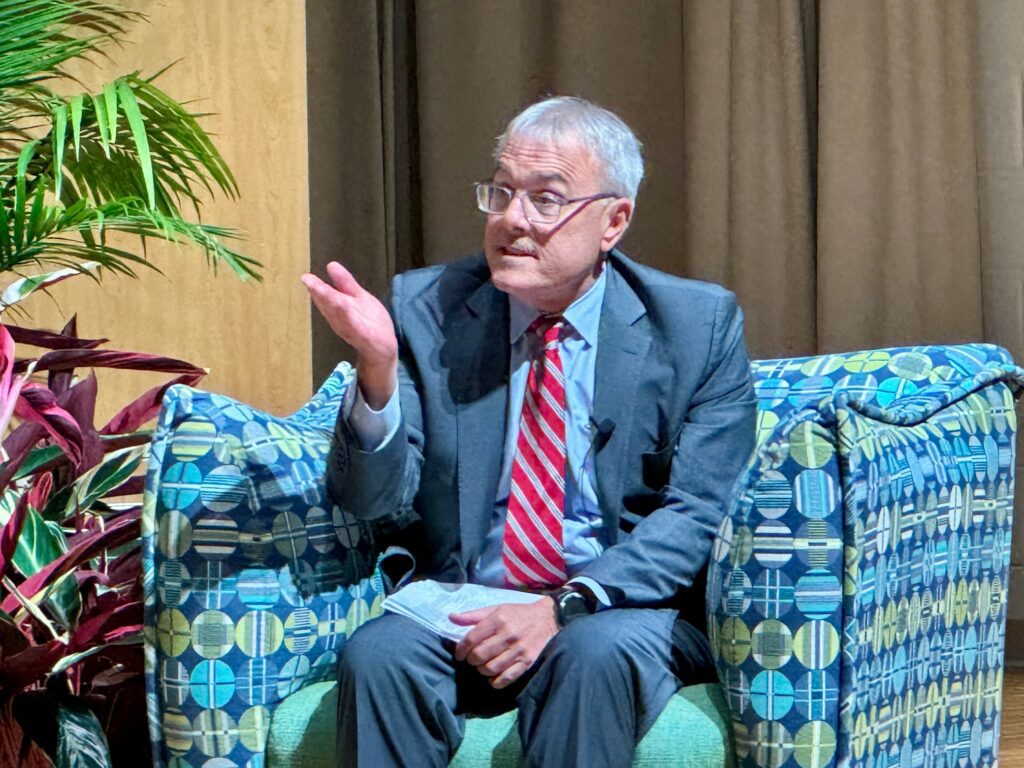
Constantine discussed Dogwood’s plans for 2024, and you can see those plans and opportunities by strategic opportunity on this new webpage. He moderated a panel with the vice presidents for each of the Trust’s strategic priorities, sharing what’s ahead in 2024:
- Sarah Grymes, vice president of housing and Team Live, including 2024 priorities.
- Alex Howard, vice president of health and wellness and Team Thrive, including 2024 priorities.
- Sarah Thompson, vice president of economic opportunity and Team Earn, including 2024 priorities.
- Ereka Williams, vice president of education and Team Learn, including 2024 priorities.
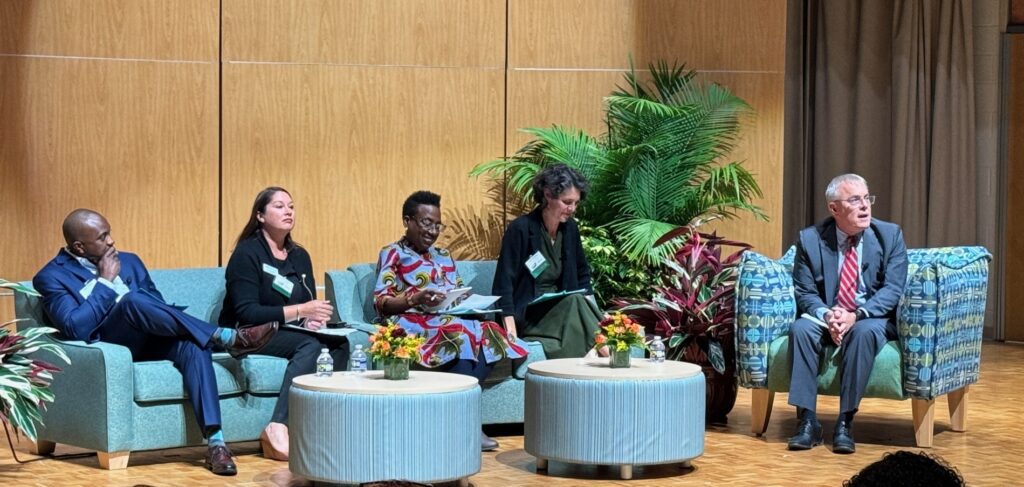
The “engage with us” process with the Trust will open up on Nov. 13, and Constantine said those who engage can expect consistency and for the Trust to “stay the course,” a process that has been simplified and will include one point of contact, as well as fewer reporting requirements.
Constantine said the Trust will be showing up more in community. In the first quarter of 2024, the team will be present in the Qualla Boundary and all 18 counties they serve.
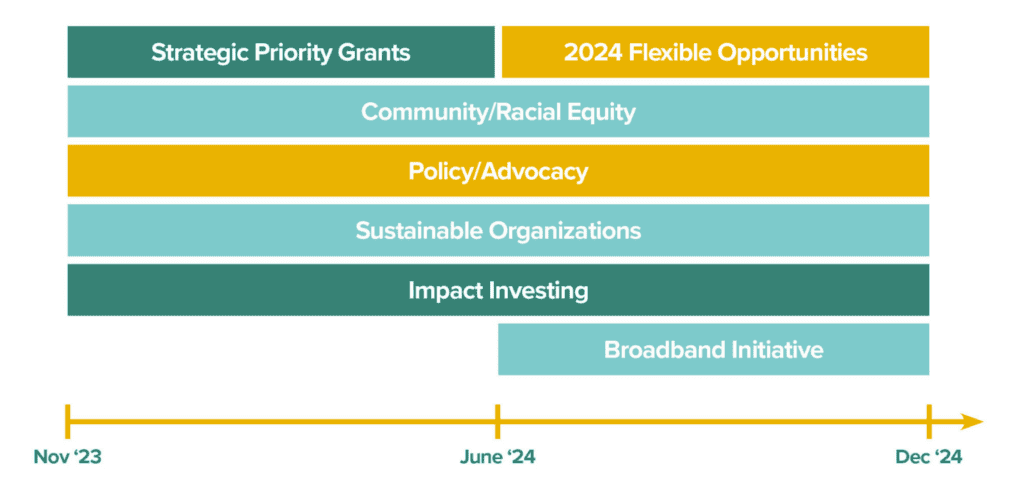
Learn more about Dogwood Health Trust
According to its website, “Dogwood Health Trust is a private foundation based in Asheville, North Carolina with the sole purpose of dramatically improving the health and well-being of all people and communities of 18 counties and the Qualla Boundary in Western North Carolina.”
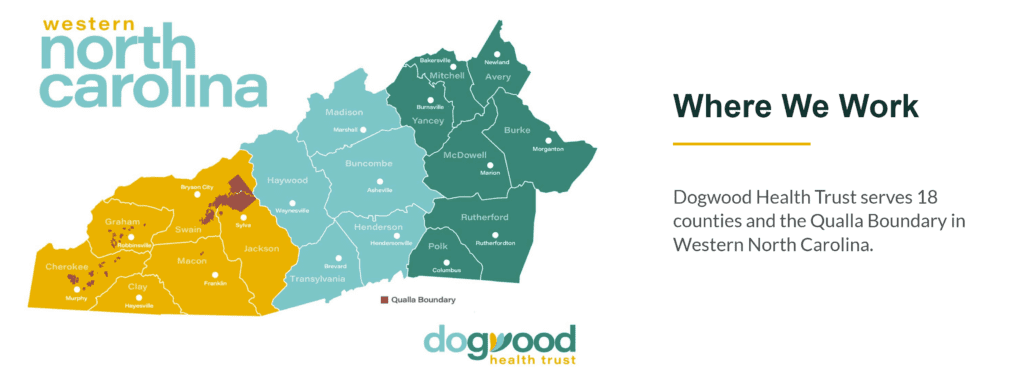
The Trust was established on May 16, 2018, and it has been fully operational since February 1, 2019.
In 2022, the Trust distributed more than $81 million in combined grants, impact investments, and other forms of support.
Editor’s Note: The Dogwood Health Trust supports the work of EducationNC.


